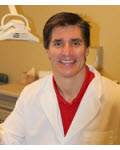Affordable Dental Insurance Plans - Near You in London, KY
Pepperhill Dental Care
Appointments: (606) 877-8700

Michael Trosper D.M.D.
Pepperhill Dental Care
130 Thompson Poynter Road
London, KY 40741




Pepperhill Dental Care is a trusted London area dental implants practice providing natural-looking, comfortable tooth replacement. We make it our mission to use a gentle touch during the process.
We hold ourselves to the highest standards to replace missing teeth and provide you with natural-looking results. Our goal is to restore your confidence and your bright, healthy smile.
A beautiful smile can brighten your life! If you are continuously hiding your chipped, stained, or cracked teeth from others, it's time for a change! Michael Trosper, D.M.D., a trusted London area dentist, can fix chips, cracks, and stains to reveal a great new smile - and a new you. You'll look so good you'll wonder why you waited so long!
London area cosmetic dentist Michael Trosper, D.M.D. has extensive experience creating beautiful smiles. They're one of the first things people notice about you.
Our professional team will be happy to discuss your aesthetic dentistry options. The attractive results you'll get from Pepperhill Dental Care can change your life!
Most major credit cards are accepted at Pepperhill Dental Care in the London area. Types of cards accepted include Visa, MasterCard, and Discover Card.
Don't let untreated dental problems get you down. Rebuild your confidence with a beautiful new smile. From simple treatments that make a big difference, to more extensive work, unveiling the smile you were meant to have can have profound life-changing effects. Serving the London, KY area and offering dental financing, Dr. Trosper can help you develop an affordable treatment plan you'll feel good about.

More Dental Financing Dentists in the London, KY Area Near You
Lake Cumberland Endodontics
87 Sarahs Ln
Somerset, KY, 42503-2789
Fotos, Peter G D.D.S.
4010 Dupont Cir # 524
St Matthews, KY, 40207-4888
Doctor - Activate Your Free 1stDentalFinancing Directory Listing
Vasseur, Lisa M D.D.S.
7426 Us Highway 42 # 106
Florence, KY, 41042-2056
Robert Fontana D.D.S. DMD P.C
6810 Dixie Hwy
Louisville, KY, 40258



